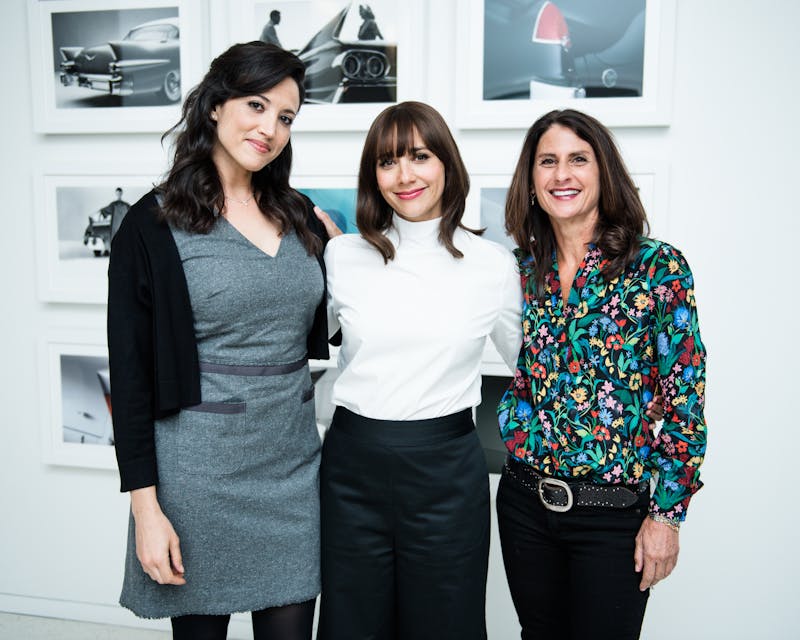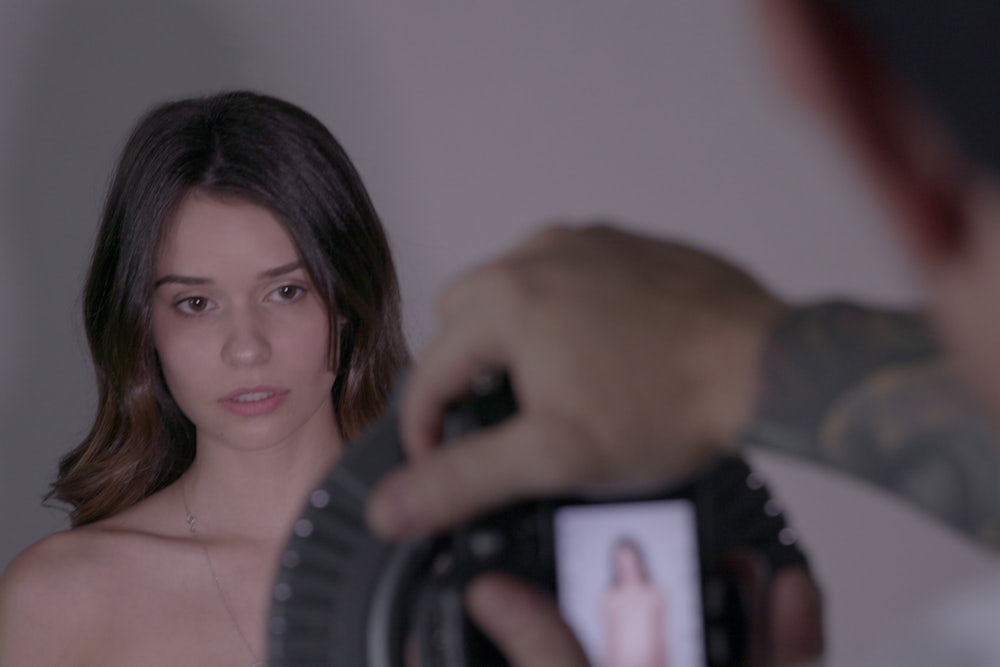Where is the line between “fair use” in the legal sense and ethical transgression? As Vocativ reported on Monday, several adult performers have accused the producers of the Netflix documentary series Hot Girls Wanted: Turned On—which is meant to be a sympathetic window into the porn industry—of featuring them without their consent. In one case, the performer’s legal first name was revealed on screen after the producers found her Facebook page.
Gia Paige alleges that she signed a participant release form, then changed her mind about appearing on camera, asking the producers, who include the star Rashida Jones, to cut her. She remained in the final edit. Furthermore, she alleges that the producers used an image of her Facebook page, which at that time included her real first name, without her permission: a dangerous betrayal for a professional at risk of stalking.
The documentary also features cam performers Effy Elizabeth and Autumn Kayy in a Periscope clip. Although the clip is accessible to the public, Elizabeth told Vocativ that having it streamed by Netflix is a different matter. “Everyone is on Netflix,” she said, suggesting that the documentary’s amplification of their performance changed the nature of its presence online. Neither performer was alerted by the producers prior to being featured, they allege. Kayy tweeted that the production company merely offered to “explain fair use” to her, rather than apologize or acknowledge wrongdoing. Elizabeth told Vocativ that she knew “it’s going to be almost impossible to get any sort of justice for this.” The producers of Hot Girls Wanted: Turned On did not respond to the New Republic’s request for comment.
In an email to the New Republic, Gia Paige recalls that she only agreed to take part in the series in the first place to redeem the negative way that her then-partner Riley Reynolds was portrayed in the series’ predecessor Hot Girls Wanted, which focused on the amateur porn industry. “I was willing to show our relationship and that was it.”
A week later, the producers had lined up strange “date” scenes for Reynolds and Paige to appear in. After a walk through a butterfly garden, the producers wanted to take them to a pool hall. At the pool hall, Paige describes how producers Jill Bauer and Ronna Gradus put pressure on her, saying that “Riley told them he had not met my parents and that I should talk about that while they filmed us playing pool.” This was a hard boundary for Paige, who did not want her family involved. As she cooled off and ate dinner, she realized that the crew was continuing to film her. After asking them to stop, they persisted.
The next day, the producers filmed another interview, and again got “too personal.” Paige says that she ended up in tears and having a panic attack. Though the producers “pretended to be very remorseful,” Paige told me that all the footage she asked to be cut was, in fact, used. Paige also believes the use of her Facebook page, with her real name, was “retaliation” for being difficult. “This was not a mistake,” she says.
Paige only found out that she was featured in the documentary when she heard from a third party: “I didn’t even know that I was in the documentary until a ‘fan’ messaged me telling me they knew my real name and personal information. Do you understand how scary that is? Nobody called me to warn me.”
In an interview with Rolling Stone, producers Rashida Jones, Jill Bauer, and Ronna Gradus explained their approach to the porn industry. They “wanted to show where there was dark, there was also light.” In particular, Jones said that she was interested in “self-empowerment versus self-objectification.” In contemporary feminism, she feels, the rhetoric of self-empowerment encourages young women to think, “You decided you wanted to be in porn, you decided you like it, and therefore you are empowered by it, and in theory that is great.” But for teenaged performers, she sees regret ahead.
Meanwhile, “There is an entire industry that depends on these women empowering themselves because they want these women to be in their films, and they want to make money off of them. So, what does it mean to actually feel empowered by sexuality?”

Many documentaries push the relationship between filmmaker and subject in such a way that may, eventually, make the subject uncomfortable. Louis Theroux, for example, consistently exploits his subjects’ naïveté to gain their trust. This is what a participant release facilitates in documentary filmmaking. But Hot Girls Wanted claims to be an empowering peek inside an industry maligned by mainstream feminism and lawmakers alike. The exploitation of trust, in this case, undercuts that purpose.
Mainstream journalism on sex work in general is often irresponsible, inaccurate, and ideologically driven. It is also very seldom made by sex workers or adult performers themselves, and rarely amplifies the expressions of workers who are, in fact, already in the public arena. As reporter and author of Playing the Whore Melissa Gira Grant told the New Republic, “It’s not credible, especially not now, to premise any media project on ‘giving sex workers a voice,’” given their own ability to communicate with audiences through social media and other internet platforms on their own terms. What they lack is access, “the kind of access,” she says, enjoyed by “Rashida Jones and countless other documentary producers that means they can get their work onto Netflix.”
In their rush to “humanize” adult performers and explore the concept of “empowerment,” the producers enact precisely the kind of objectification and dehumanization that they aim to critique. Legal though it may be to show the face of somebody who signed a release and then said no, and legal though it may be to introduce an adult Periscope scene to a mainstream audience, the documentary displays a lack of interest in its subjects’ consent that should alarm viewers interested in journalistic ethics, women’s safety, or both.
